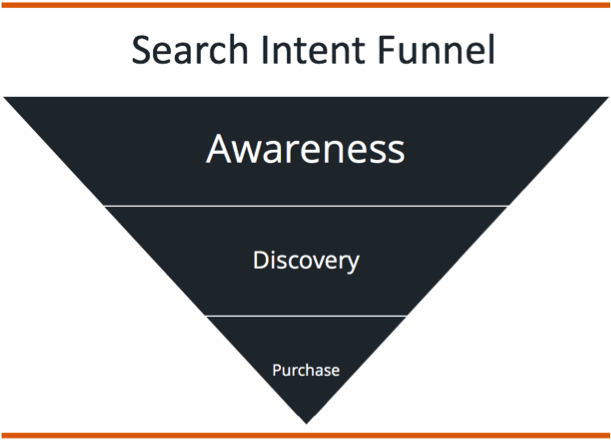Chaffey et al. (2004) has described Internet marketing as the application of the Internet and related digital technologies to achieve marketing objectives. These marketing objectives can be fulfilled through the effective use of SEO.
What is Search Engine Optimization?
Search engine optimization and marketing is a set of processes widely used on websites to improve search engine rankings which generate quality web traffic and increase return on investment (ROI).
Utilizing an SEO strategy is down to the purchasing behaviours of consumers, who communicate their purchasing needs through the use of search engines (predominantly Google, who has a search engine market share of 75%) often resulting in the purchasing of products and services (Batista, 2008). Businesses are quickly recognising the importance of SEO becoming a key source for customer acquisition. (Olbrich and Schultz, 2008), that’s why search engines are considered to be one of the most dynamic digital marketing tools (Olbrich and Schultz, 2008; Barnes, 2007).
SEO brings high-value results as user intent is high: WANT > SEARCH > GET INFO > BUY.
6 Key Components of SEO, Essential for Increasing Rank Placement on Search Engines:
According to Forbes (2012) there are 6 key areas of SEO that need to be considered to successfully maximise a websites Internet visibility. These are as follows:
- Keywords:
- When constructing, or updating your website, the use of SEO and keywords is fundamental to being discovered organically online. You do have the option to pay for higher-ranking placement (Google Ad words – as evidenced below) on search engine results, however this can be costly and must be regularly maintained.
- Keywords are the specific phrase which is driving traffic to your specific website URL. Understanding what users are searching for when discovering your website in a search engine will be crucial to developing a successful SEO strategy. Keyword research is the initial step undertaken to achieve SEO success and can be commenced by useful online tools such as SEMrush that will help identify keywords for your website and allows you to snoop on the competition.
- It is important to note that some keywords may appear too competitive to gain a credible online ranking, such as “short-tail keyword” phrases, i.e. Make money online. However, you can overcome this hurdle by using “long-tail keyword” phrases, i.e. How to make money blogging. This method is considered more profitable, as it will drive more targeted traffic due to a smaller number of competitors using that phrase in search engines.
- Meta Tags:
- Try using your selected keyword within the title of your page. By default, this title will also be the title shown in the search engine results (i.e. meta titles). In addition you can also write a description for users to see when they access your website in search engines (i.e. meta description).
- Meta tags play a key role in SEO optimization.
- Content:
- Search engines have stated that creating quality content is the best way to not only rank for keywords, but also create positive user experiences. Creating an online presence through the use of informative content will help boost user traffic that will increase potential sales.
- The content on your website should be organised in a clear logical way. This is not only good for SEO, but it also helps visitors navigate your website finding other relatable content.
- Backlinks:
- Backlinks is a link a website gets from another. Backlinks make a huge impact on a websites prominence in search engine results. This is why they are considered very useful for improving a websites SEO ranking.
- Try creating graphics or newsworthy content that will influence others to link your content.
- Social Media:
- Websites must take advantage of the potential exposure a strong social media presence can achieve, such as Facebook, Twitter, Instagram, etc. Social media platforms are essential to sending search engines signals of influence and authority and thus increasing potential ROI.
- Product Images:
- Optimizing your images for search engines by selecting your preferred keyword in the file name is essential to increasing the possibility of consumers discovering your content.
Check out Maile Ohye’s video below for additional help with optimizing your brand online:
How to measure SEO success?
Traffic:
- How many users visited your site through organic search results. This provides a good indication whether SEO has placed your content high in search engine rankings. This will also identify your keyword performance and whether your selected keyword is proving successful compared to your competitors. Google analytics can be used to measure keyword usage and website traffic. With Google Analytics, you can track ROI for your online marketing (Google Analytics, 2018).
Engagement:
- Engagement can be measured by the time users spend on your site, the bounce rate or even the shares, likes and comments received across your social media platforms.
Following these key areas of SEO improvement will aid your business growth in the initial stages of development. It will allow consumers to discover your new brand, and will help you gain a foothold in your chosen market.
References:
Agrawal, H. 2018. “The Importance of Keywords in SEO: A Beginner’s Guide” [Online] https://www.shoutmeloud.com/importance-of-keyword-for-search-engine-optimization-seo.html [Accessed 20th February 2018]
Barnes, T. (2007). “RSS: Marketing newest communication channel”. Journal of Website Promotion 1, 4, 15-30.
Batista, H. (2008). “Techniques for growing small search engine marketing firms”. Search Engine Marketing Journal, Vol. 1.
Chaffey, D. (2004). E-Business and E-commerce Management, Second Edition.
Forbes, 2012. “The 6 Basic Components Of A Strong SEO Strategy For Online Retailers” [Online] https://www.forbes.com/sites/theyec/2012/08/03/the-6-basic-components-of-a-strong-seo-strategy-for-online-retailers/#5d36b80eea53 [Accessed 20th February 2018]
Google, 2018. “Google Analytics Solutions” [Online] https://www.google.com/analytics/#?modal_active=none [Accessed 20th February 2018]
Olbrich, R. and Schultz, C. (2008). Search engine marketing and click fraud. Research Paper No.5. FernUniversität, Hagen.
Postan, L.R, 2017. “What Is SEO’s Role in the Digital Marketing World?” [Online] https://www.searchenginejournal.com/outbrain-seo-quiz/210008/ [Accessed 20th February 2018]
semrush, 2018. “All-in-one Marketing Toolkit” [Online] https://www.semrush.com [Accessed 20th February 2018]

